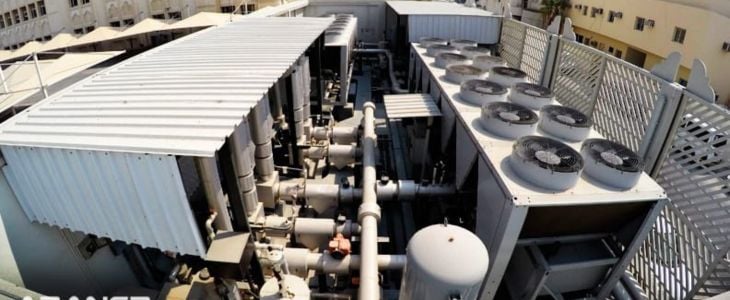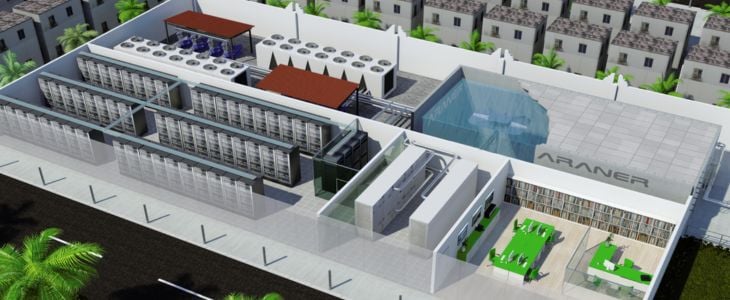The data center Qatar market is experiencing a particularly thrilling moment, in which multiple factors have aligned to present a booming current context and promising future.
As data centers represent the key physical facilities to contain critical applications and data by companies, they’re becoming increasingly crucial for modern business contexts.
Keep reading to find out about the specifics of the data center Qatar market today and its outlooks for the future.
The characteristics of the data center Qatar market
On the one hand, there have been outstanding investments in state-of-the-art infrastructure in recent times. These respond to a growing demand for data storage and processing, owing to the State’s expanding economy: from finance to energy, transportation, and logistics, Qatar’s leading industries generate significant amounts of data that require reliable data center services for storage, processing and analysis.
Additionally, the data center Qatar market has been actively promoted by the Qatari government, who has encouraged digitalization and technology adoption as part of its National Vision 2030 plan. The plan incorporates a series of initiatives to develop a robust digital infrastructure, including data centers that can push the evolution of projects such as smart city initiatives and digital transformation efforts, among others.
On top of this, the data center Qatar market is particularly booming due to its privileged geographical location: the country serves as a gateway between Europe, Asia and Africa, thus represents a strategic location for markets looking for low-latency services. In such a context, it could easily become a hub for regional data center operations.
All these promising factors have aligned and managed to attract a key investment in 2022: in July that year, Microsoft announced the launch of its new datacenter region in Qatar, a project that represents the first hyperscale cloud provider to deliver enterprise-grade services in the country. As reported by Microsoft itself, the goal of this data center is to provide scalable, available and resilient cloud services in the area, thus accelerating its digital transformation and cloud adoption. The investment has been forecasted by IDC to generate app $18 billion in new revenue and will add over 35,000 jobs.
Some figures to describe the data center Qatar market
Specific statistics for the data center Qatar market show that its revenue is projected to reach US$159.60m in 2023, showing an annual growth rate of 4.14% in the period between 2023 and 2027 and thus leading into a US$187.70m market value by 2027.
These figures can also be measured against forecasts targeting the Middle East data center market value as a whole. In this case, Mordor Intelligence predicts the market will ‘double its capacity in the upcoming years’, registering a CAGR of 3.15% between 2021 and 2026.
This rise, the report continues, is due to the rapid extension of technological development in the area: from SaaS cloud adoption, to data localization, 5G, IoT, Artificial Intelligence and Machine Learning. This leaves organizations with a need for reliable data center infrastructure that is able to meet a growing demand for data access.

Trends in the data center Qatar market
- A development of the internal market due to the implementation of new technologies: new opportunities are expected to arise in the regional market due to the development of advanced technologies, such as blockchain, IoT, AI and Virtual Reality.
Additionally, the deployment of edge computing and 5G will also translate into an increase in data centers, as this region moves forward the building of smart cities and increased business digitalization. This will be supported by explicit governmental support for digital initiatives as part of the National Vision 2030 plan mentioned above.
- A quest for efficiency: achieving data center efficiency lies at the center of making any data center project reliable and sustainable in the long term, both in economic and environmental terms. While this is a general statement for all data centers on a global scale, the particular climatic conditions of Qatar make the area the perfect testing grounds for achieving efficiency.
Innovative cooling solutions for data centers will play a key role in the development of successful data centers of the future: while data centers typically produce a lot of heat, the need for reliable energy-efficient cooling solutions for Data Centers has become a priority. In fact, structures like the data center chiller plant or the choice of the right cooling source play a key role in determining the center’s operational costs and their reliability. Avoiding downtime, equipment failure and data loss can be done efficiently through the incorporation of Thermal Energy Storage (TES) systems.
These are able to both act as a potential emergency cooling source to maintain the low temperatures of the chilled water supply, as well providing extra energy during off peak periods. As increasingly sophisticated TES structures are devised, these will play a key role in the development of the data center Qatar market, facilitating cost savings and reliability. In fact, the top, most secure tier in data center redundancy is expected to increasingly rely on establishing such solutions in order to ensure the center is connected to multiple power and cooling networks.
- Renewable energy and green data centers: Qatar’s significant investments in renewable energy sources, including solar and wind power, will also have a direct impact in the data center market. The adoption of green data centers is forecasted to be another key trend for the coming years in Qatar. These include data centers running on renewable energy sources to power their operations, but also centers that present optimized cooling solutions guaranteeing the center’s energy efficiency, as well as the incorporation of waste-heat recovery structures, able to reuse heat emissions, turning waste into climate-positive energy consumption.
Innovative data center in Qatar: a case study
As part of our work to develop innovative thermal energy solutions for data centers, at ARANER we’ve been in charge of developing a state-of-the-art project at Qatar.

As the Public Works Authority of Qatar devised their new office building, their data center design was met with the need of incorporating a powerful cooling plant. The goal was to introduce a Thermal Energy Storage (TES) system that would act as an emergency cooling source, so that, in case the main structure failed, the low temperatures of the chilled water supply could be maintained.
In fact, their data center involved a Tier 4 Power and Mechanical Infrastructure, that is, one that had redundancy configuration at its core, supporting both the Control Rooms and Data Centres for this key Qatar administration building.
Our mission was thus to design a system that was robust and less prone to failures, as the data center would host mission critical servers and computer systems through a structure of fully redundant subsystems and compartmentalized security zones controlled by biometric access controls methods.
The incorporation of a Thermal Energy Storage (TES) system would then act as a secondary back up for the data center that would start working in case of a main power blackout that would cause downtime in the generator and chillers.
Our work involved a re-design of the Thermal Energy Storage system that was already in place. Through a thorough analysis that considered performance and cost factors, natural stratification emerged as the best alternative for the project, which could deliver 85 to 95% of the stored energy as useful cooling.
The result was a Thermal Energy Storage (TES) tank that consists of a naturally-stratified thermal accumulator in charge of storing chilled water produced during off-peak time (that is, using excess of power generation, which usually coincides with the night, driving chiller performance due to lower temperatures).
This allowed not only for a fully reliable data center, but also a reduction in the operational costs, including 13% savings in electricity.
As such, at ARANER we put our expertise in the fields of cutting-edge refrigeration, cooling and heating to devise and implement a reliable and cost-efficient structure that is now part of the leading initiatives in the data center Qatar market.
If you want to learn more about our Al-Ashghal project in Qatar, you can download our free case study and see its ins and outs. You can also get in touch with our team to discover how we can help you develop the data center cooling system your project needs.










